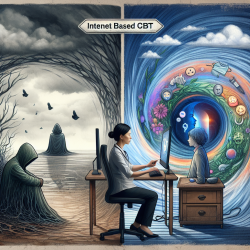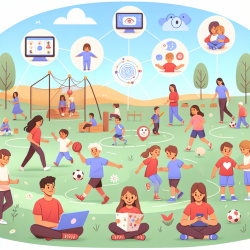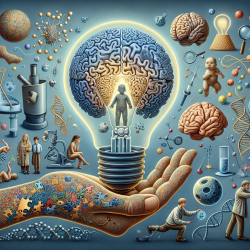Introduction
The digital age has brought about significant advancements in therapeutic practices, particularly in the realm of Internet-based Cognitive Behavioral Therapy (ICBT). A recent study titled "Knowledge gain and usage of knowledge learned during internet-based CBT treatment for adolescent depression - a qualitative study" offers valuable insights into how adolescents gain and apply knowledge from ICBT. This blog aims to guide practitioners in leveraging these findings to enhance their therapeutic skills and outcomes.
Understanding the Study
The study explored the experiences of ten adolescents, aged 15 to 19, who underwent ICBT for major depression. Using thematic analysis, researchers identified two main themes: "Active agents of CBT" and "Passive agents of CBT." These themes reflect the varying degrees to which adolescents remember and apply CBT principles post-treatment.
Active vs. Passive Agents
- Active Agents: These adolescents could vividly recall and actively apply specific CBT strategies, such as exposure and cognitive restructuring, in their daily lives. Their engagement with the treatment content was proactive, leading to sustained therapeutic benefits.
- Passive Agents: In contrast, passive agents remembered CBT principles vaguely and utilized them reactively. While they experienced benefits, their application of CBT strategies was less consistent and more situational.
Implications for Practitioners
Practitioners can draw several lessons from these findings:
- Emphasize Active Learning: Encourage clients to actively engage with therapy materials. This could involve setting specific goals for applying CBT strategies in real-life scenarios.
- Enhance Memory Retention: Use techniques that reinforce memory, such as repetition, quizzes, or practical exercises that require active recall of CBT principles.
- Tailor Interventions: Recognize that clients may vary in their ability to recall and apply therapy content. Tailor interventions to support both active and passive learners, possibly by integrating more interactive and personalized elements into ICBT modules.
Encouraging Further Research
The study highlights the need for further exploration into the role of explicit knowledge and memory in ICBT. Practitioners are encouraged to contribute to this growing field by conducting additional research or participating in studies that examine long-term outcomes of ICBT in adolescents.
Conclusion
ICBT offers a promising avenue for treating adolescent depression, with the potential for lasting impact when clients actively engage with the therapy content. By understanding the dynamics of knowledge gain and application, practitioners can enhance their therapeutic approaches, ultimately leading to better outcomes for young clients.
To read the original research paper, please follow this link: Knowledge gain and usage of knowledge learned during internet-based CBT treatment for adolescent depression - a qualitative study.










